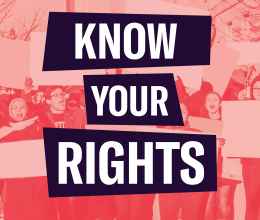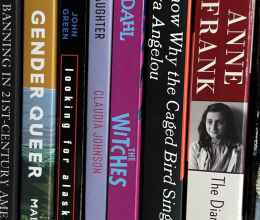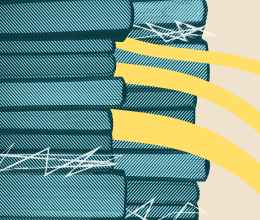Today, U.S. District Court Judge Sharon Johnson Coleman granted the American Civil Liberties Union of Illinois’ motion for summary judgment and ordered the entry of a permanent injunction in the ACLU’s case challenging the use of Illinois’ eavesdropping law to prosecute individuals for audio recording police in a public place. Today’s ruling brings the matter to an end.
On November 20, 2012, the Supreme Court of the United States denied a request by Cook County State’s Attorney to review a May 2012 decision by the U.S. Court of Appeals for the Seventh Circuit. The appellate court ruled for the ACLU of Illinois.
Judge Coleman’s ruling and injunction permanently blocks the Cook County State’s Attorney from prosecuting ACLU staff for audio recording police officers performing their public duties in a public place and speaking loudly enough to be heard by a passerby. The recordings take place as part of the ACLU’s long time practice of monitoring police practices on the streets of Chicago. The information gathered by the ACLU of Illinois is used as part of its advocacy for changes in police practices in the City.
Two state court judges previously ruled that the application of the law to prosecute individuals for recording police in a public place is unconstitutional. And, a Cook County jury last year acquitted a young woman charged with the offense.
The ACLU of Illinois is assisted in this matter by the Chicago office of Sidley Austin, including Richard O'Brien, Linda Friedlieb, Robert Leighton and Matthew Taksin.
The following can be attributed to Harvey Grossman, Legal Director of the ACLU of Illinois:
"We are pleased to receive the Judge’s ruling and to bring this matter to a final judgment. As a result, he ACLU’s program of monitoring police activity in public can move forward in the future without further threat of prosecution. The judgment confirms our long-articulated belief that in order to make the rights of free expression and petition effective, individuals and organizations must be able to freely gather and record information about the conduct of government and their agents – especially the police. In an age when almost everyone carries or has access to a smartphone, the recording and dissemination of pictures and sound is inexpensive, efficient and easy to accomplish. In short, the technology makes almost anyone a citizen journalist, deserving of protection under the First Amendment.
While this ruling is limited to the work of the ACLU of Illinois in monitoring police activity, we believe that it will have a ripple effect throughout the entire state. No one in Illinois should be threatened with prosecution simply for audio recording public officials performing their duties. Empowering individuals and organizations in this fashion will ensure additional transparency and oversight of public officials across the State."




